#on hauntology
Text
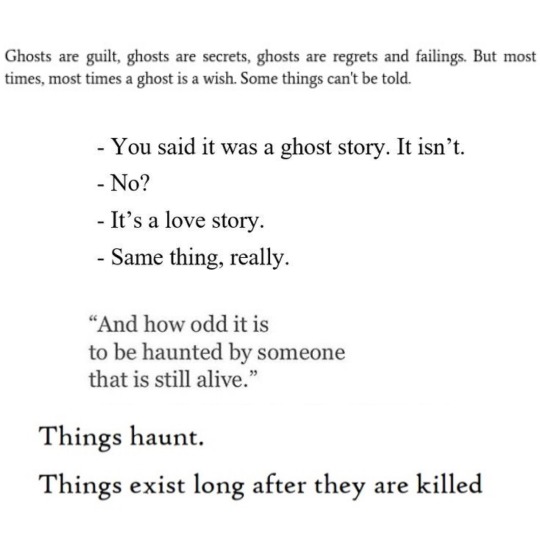



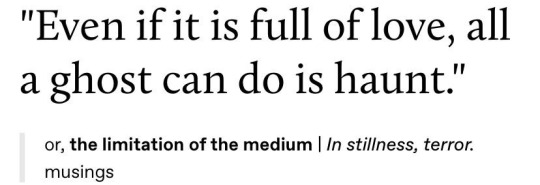
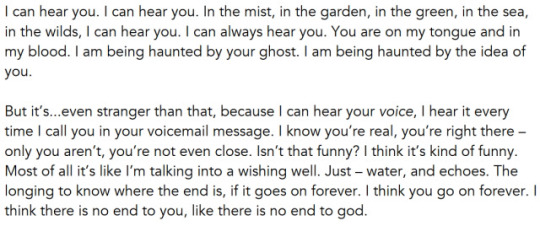
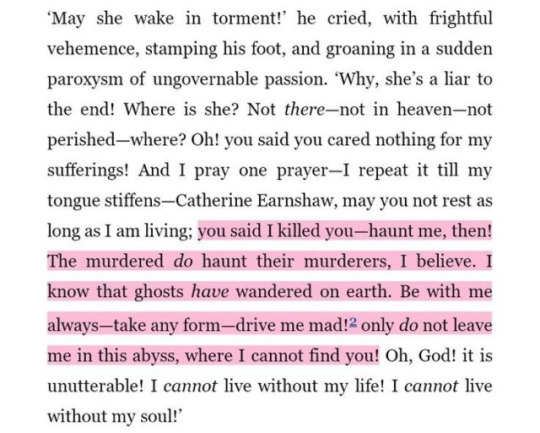


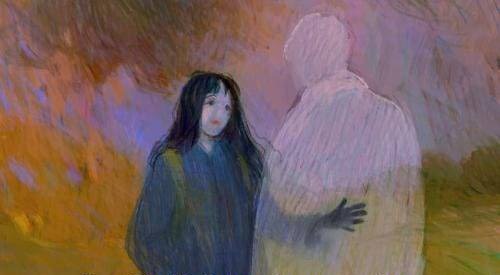
You know I didn’t want to, have to haunt you, but what a ghostly scene
#words#poetry compilation#quotes#web weaving#on love#poetry#webweaving#on devotion#poem#web weave#on lovers#on longing#on grief#on loss#on ghosts#on haunting#on hauntology#the haunting of hill house#the haunting of bly manor#a ghost story#taylor swift#wuthering heights#emily bronte#cigarettes after sex#on missing someone#i miss you#so much
6K notes
·
View notes
Note
Webweaving request for ghosts or a kind of haunting feeling (metaphorically)? Like the vibes you sometimes get from looking at liminal spaces, or being alone in a usually crowded area. Just being haunted by a lack of something rather than a presence. (iirc this concept is called hauntology)
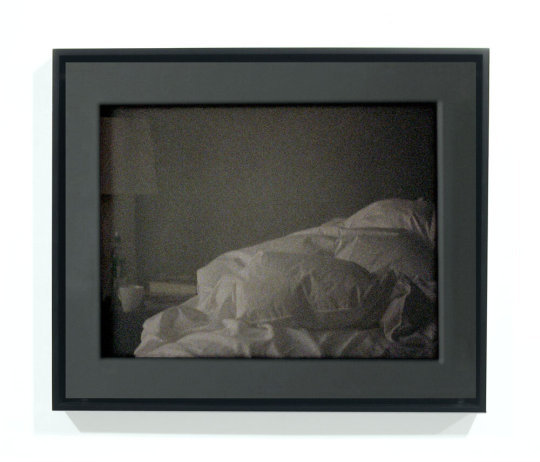

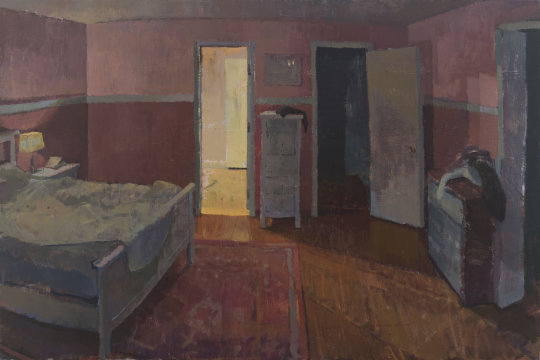
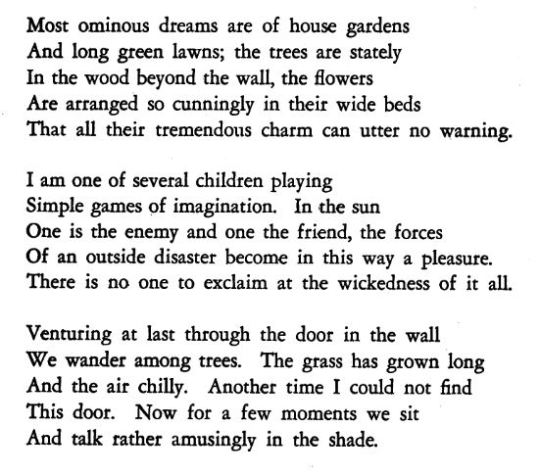


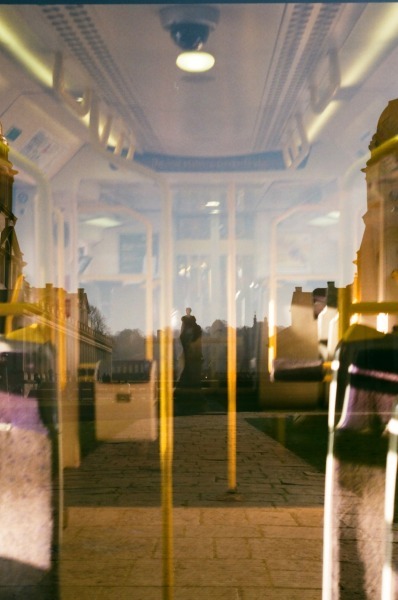



joy episalla (via @slack-wise) \\ @sawasawako \\ sara pedigo whispering to the moon (2020) \\ john waller haunted wood \\ joy episalla (via @slack-wise) \\ mark strand the continuous life: poems: "orpheus alone" \\ @catilinas \\ jake adam york a murmuration of starlings: "the crowd he became" \\ joy episalla (via @slack-wise) \\ john waller haunted wood
kofi
#on hauntology#ooo i love this concept#asks#anonymous#sawasawako#sara pedigo#whispering to the moon#joy episalla#slack-wise#hauntology#on haunting#webweaving#web weaving#mine#my webweaving#webweave#web weave#webs#ww#web#parallel#parallels#parallelism#compilation#compilations#intertextuality#john waller#haunted wood#jake adam york#a murmuration of starlings
178 notes
·
View notes
Text
redistributing wealth (searchable pdf of horror in architecture by joshua comaroff & ong ker-shing) to the masses (tumblr users obsessed with haunted houses)
enjoy! <3 xoxo
edit 01/06/2022: the google drive link stopped working for some reason but here's a working link to it on archive.org!
#pdfs#haunted houses#horror in architecture#architectural hauntings#hauntings#architecture#hauntology#horror#kaylee.txt#apologies for the amount of times you can see my fingers holding the pages down lmao#this book has a weird spine and does not want to stay open#but my library loan of it is due in 3 days with no renewal and i havent finished it yet so i figured i might as well scan it#so i can finish it + also so other ppl can read it !
6K notes
·
View notes
Link
A Hauntology for Everyday Life
Meaning, Language, and Subjectivity
Ghosts, Metaphors, and Structures of Feeling
The Haunted Objects of Desire
Hauntology sans Exorcism, from Justice to Networked Subjectivities
Epilogue by Michael M.J. Fischer: Hauntology’s Genesis, Catacoustics, and Future Shadows
Correction to: The Hauntology of Everyday Life
1K notes
·
View notes
Text
something so hauntological about watching mash season 3 knowing how it ends...none of the characters know henry's never going to make it home, the actors all found out in real time. but the narrative knows how this ends, and the narrative is waiting with an open mouth. so the narrative has henry prefigure his own death throughout the season. in o.r. when hawkeye reassures him one day you're gonna have to go back and die in your bed in bloomington, henry says that he's done that several times. he complains in private charles lamb that everything in this country disappears except me (untrue) followed by boy, would i like to wake up some morning, look down and find myself gone (true). when he gets trapped in the wreckage of the latrine in bombed he knocks twice for "dead" rather than three times for "alive." then there's the scene in the consultant where he soaks in the pool, calling it heaven but says the water could be just a titch warmer (burning burning burning), avoiding conversation with frank by submerging himself underwater. henry spends the whole season unknowingly rehearsing his impending death. he goes around camp trying on other people's deaths for size, haunting the narrative before he's even out of it.
in conclusion:

#mash#id in alt text#this is a pointless text post#using the last shreds of my brain power to formulate one (1) thought before this migraine takes over#something something tommy gillis giving him the kiss of death in sometimes you hear the bullet#it's kinda fucked up that they were going to have the cast party immediately after like one of the writers should have said something :/#deadass if i'd have been mac i would have cried myself to sleep for a week i'd be PISSED#anyway i firmly believe i could get at least three people into mash based solely on The Hauntology and i'm only three seasons in#ghosts
496 notes
·
View notes
Text
The Pale is a haze that bends and warps reality and memory. It is a grayness into nothingness, impossible to describe or measure, a location without a defined location, into which one’s memories scramble with other’s and no one’s. It is filled with information from the past, but none that is clear, instead degraded like that of the damaged tapes found in the game. Traveling through it is dangerous. Reality is suspended, and one’s brain becomes garbled as one ceases to be able to remember what is the present and what is the past; what are one’s memories and what are not. It encases the game with a sense of oncoming apocalypse, as the majority of the planet is covered with it, and worse, it is expanding. A parallel to both our own climate change, and our cultural stuckness, it represents the end. The end of the world, a slow and ongoing process; and the end (or more accurately, the edge) of possibility. Disco Elysium’s reality is bounded by a sea of nothingness, in the same way our own is, with no escape from the confines of capitalist reality imaginable.
What hope is there for such a dying world? A world exhausted of the new, ravaged by neoliberal austerity, and overflowing with suffering. In this capacity, Disco Elysium is no fantasy, but our own sad, warped reality. In his book Ghosts of My Life, Mark Fisher describes the concept of hauntology. Originally a term coined by Jacques Derrida, hauntology is an idea that can be understood as how everything that exists is defined not only by what is present, but equally so by what is absent (the word itself reflects this: ontology is the branch of philosophy that studies existence and being. In Derrida’s native French, the h in hauntology is silent, thus (h)auntology is pronounced the same as ontology). He argues that hauntological music, in how it engages with memory and loss, has “an implicit acknowledgment that the hopes created by postwar electronica or by the euphoric dance music of the 1990s have evaporated — not only has the future not arrived, it no longer seems possible.”
For Fisher, the latter half of the twentieth century represented a bursting forth of possibilities, with different cultural forms, in what he terms “popular modernism,” were allowed to experiment and expand, in large part due to post-war social welfare policies. With the closing of that period, and the dawning of the so-called “end of history,” such possibilities were drained away. Where once there was a hope for the future (whether in art or in politics), now we have only repetition and despair. In other words, to use his only terminology, these futures are lost. Yet, unlike the bubble gum optimism that neoliberals push, Fisher argues that this kind of sadness can be understood to be productive. In holding onto the desire for the future, rather than it being seen as some kind of conservatism or hopelessness, Fisher argues that “this refusal gives the melancholia a political dimension because it amounts to a failure to accommodate to the closed horizons of capitalist realism.” Sadness and holding into past desires for such lost futures, is political, and imperative, as it sustains the hope for something else, an alternative to that closed off reality that we live in under capitalism.
Disco Elysium exemplifies the kind of melancholia that Fisher talks about. The failure of the revolution is a lost future that weighs down the whole district. Despite the absence of the reality of communism in Martinaise, it exerts a strong presence like nothing else. Fifty years on from its defeat, it’s as if time has failed to really move on. In other words, the failure of the revolution haunts the area, the literal specter of communism can be found everywhere. Many of the other failures of the future can equally be ascribed to politics and the economy. Would any of the misery that surrounds Martinaise’s citizens be present if not for neoliberalism? It’s hard to say, but that ambiguity is what makes hauntology so powerful. It engenders feelings of what if and other potentialities; possibilities that the official reality attempts to close off. The character of Cuno, for example, is a twelve year old drug addict. His father is dying of alcoholism and is left mostly to his own ends, which leads him to all sorts of mischief and crime. It’s noted in the game that Cuno has potential, given the correct choices, it’s even possible for Cuno to take the place of your partner. Yet, for the most part, it only remains that: a potentiality. Cuno is just another poor soul, crushed in the grinder of neoliberalism.
259 notes
·
View notes
Photo

Mark Fisher, Ghosts of My Life Writings on Depression, Hauntology and Lost Futures
3K notes
·
View notes
Text
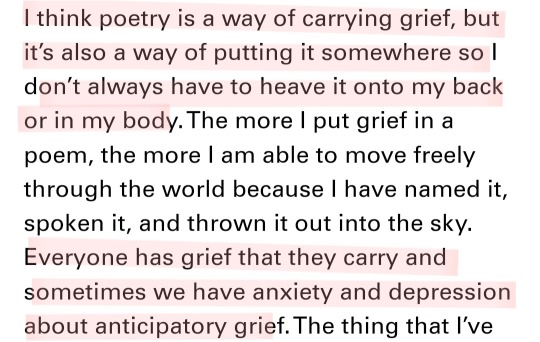
Ada Limon

James Baldwin
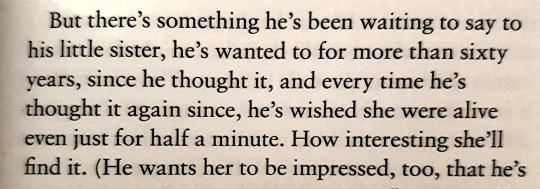
Autumn, Ali Smith

Hamlet, Shakespeare
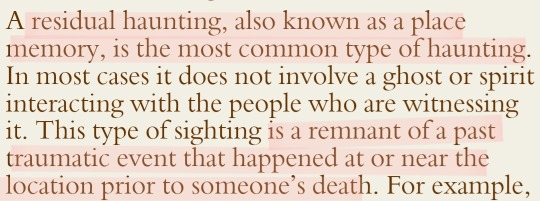
Residual Hauntings, Psychic Library

Autumn, Ali Smith

The Five Stages of Grief, Linda Pastan

Hauntology: How the Ghosts of our Past haunt our Future, Vincent Freeland


BBC Archive - What is Hauntology
Hauntology
#ameera speaks#ameera reads#cleaning out my drafts#Hauntology#i made this post when i wrote my essay like last year#web weave#ada limón#james baldwin#ali smith#hamlet#linda pastan#vincent freeland#25th#09/04/2022
232 notes
·
View notes
Text

private show
#soeren baptism#soerenbaptism#church#monastery#witchy#wiccan#witchcraft#wicca altar#faery wicca#wiccapedia#pagan wicca#wicca#wiccablr#wiccalife#occultism#occult#ritual#magick#ghost core#ghostcore#night haunter#haunt#hauntology#haunted#haunting ground#cryptidcore#corvidcore#churchyard#jesus#graveyard
64 notes
·
View notes
Photo

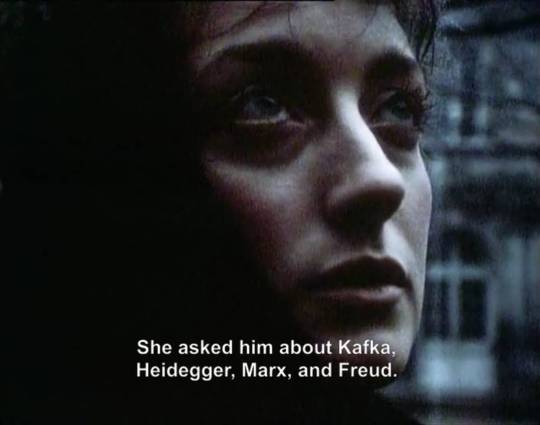
Ken McMullen
- Ghost Dance
1983
#pascale ogier#ken mcmullen#ghost dance#ghostdance#kafka#marx#karl marx#heidegger#martin heidegger#sigmund freud#freud#franz kafka#british film#1983#hauntology
442 notes
·
View notes
Text

siken, real estate
320 notes
·
View notes
Text


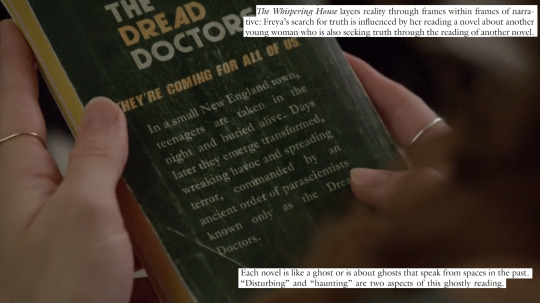



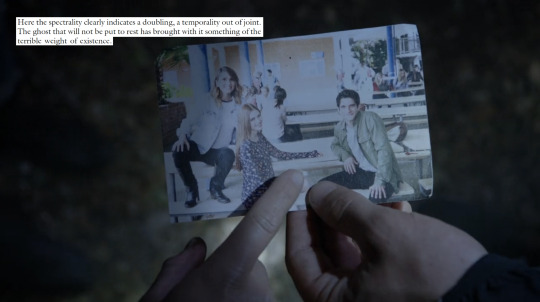


Hauntology in Teen Wolf
Haunted Images, Deadness, and Impossible Mourning by Matt Foley / The Hauntology/Narratology of the Neo-Victorian Ghost Story by Brenda Ayres / “Penelope Was Not a Phantom”: Everyday Hauntology in Alice Munro and Margaret Atwood by Joakim Wrethed / “What She Had Seen Was Final”: Everyday Hauntology, the Threat of Male Violence and the Power of Fiction in Alice Munro’s “Free Radicals”, “Runaway” and “Passion” by Joakim Wrethed
#teen wolf#hauntology#teen wolf meta#twmeta#peter hale#kate argent#lydia martin#scott mcall#malia tate#gerard argent#web weave#webweaving#mine#teen wolf academia#BACK TO MY ROOTS Y'ALL#anyways i could make this infinitely long if i wanted to there's sooo much of it in teen wolf#in many ways a lot of the show draws on gothic and victorian genre tropes 5b just does so more overtly as i've said before#but if only i could get su completely embedded in teen wolf and to watch the whole thing she could come up with some insane gothic#references within the show but alas that hasn't happened yet
34 notes
·
View notes
Text
One Day I Will Return To Your Side: Disco Elysium and Hauntology
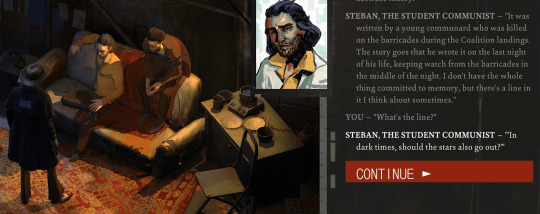
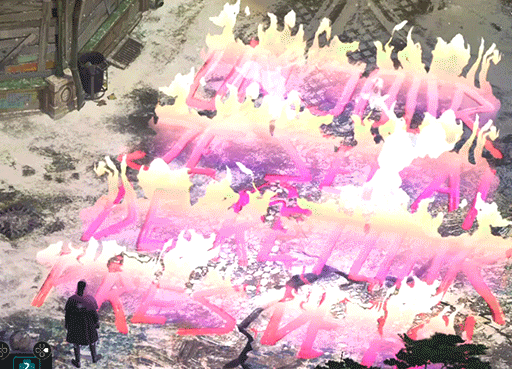
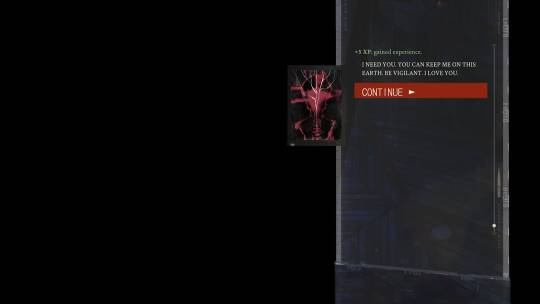
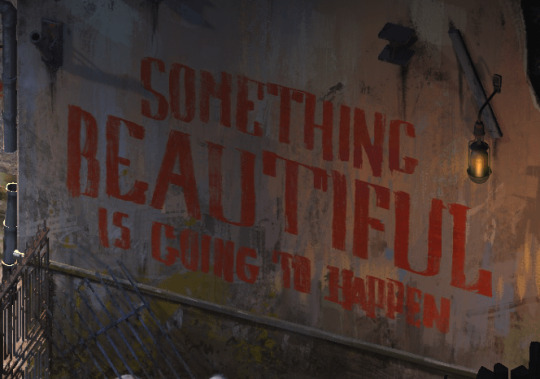
#will to live#disco elysium#hauntology#communism#de#de spoilers#disco elysium spoilers#screencaps arent mine#article isn't either obviously#just felt like sharing#cuz this stuff made me cry#and filled me with hope#be vigilant#i love you
186 notes
·
View notes
Link
Hauntology and nostalgia are not the same thing. Nostalgia is an uncritical glorification of the past. Hauntology attempts to see the past as it was in its complexities, while finding and perhaps even reclaiming the future that was being built towards. To say the artifacts of the USSR are hauntological is not to glorify the USSR in its contradictions and ugliness—its gulags and food shortages—but to perceive the Communist society that its people thought they were building.
Disco Elysium plays like an existential novel, an effect vividly enhanced by the game’s obsession with the hauntological. Even the title’s reference to disco is a hauntological artifact in and of itself. A cultural revolution of the 1970s whose effects can still be felt today, disco offered a subculture of hedonism and optimism that created a space for both queer people and black people, drawing from a variety of fringe and niche subcultures only barely tolerated by the mainstream, if at all. When the infamous “Disco Demolition Night” was organised by two radio DJs in 1979, tellingly at a baseball game, they were cementing a straight and white reaction against disco that likely killed the genre before its time. To encounter disco’s modern remnants—in club culture, in electronic music, in group dancing—this, too, is hauntology.
319 notes
·
View notes

